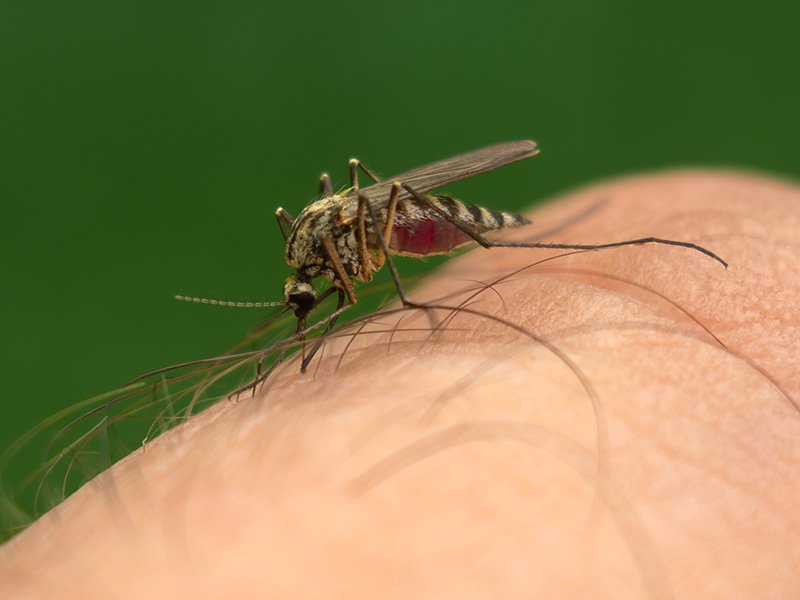What Is West Nile Virus?
West Nile Virus is a mosquito-borne disease that first appeared in the United States in 1999 and has since become the most common mosquito-borne illness in the country. In California, it shows up every summer, with varying numbers of cases depending on weather conditions and mosquito populations.
The majority of people infected, around 80%, never develop symptoms at all. For the 20% who do, the virus can feel like a flu, with symptoms such as:
- Fever and chills
- Headaches or body aches
- Fatigue and weakness
- Occasional rash or swollen lymph nodes
Though fatigue can linger, these mild cases typically resolve within a week or two.
A tiny percentage of infections (fewer than 1 in 150) lead to serious complications, particularly in adults over 60 or individuals with weakened immune systems. Severe West Nile can cause neurological problems like encephalitis (inflammation of the brain) or meningitis (inflammation of the membranes around the brain and spinal cord). These cases can require hospitalization, and recovery may take weeks to months, sometimes leaving lasting effects.
Because symptoms can look like other illnesses, West Nile Virus is often underreported or mistaken for a summer flu unless it progresses into something more serious, that’s why public health officials stress prevention as the best defense.
How Does WNV Spread?
West Nile Virus relies on a mosquito-bird cycle to survive and spread. Here’s how it works:
- A mosquito bites a bird infected with West Nile Virus
- The virus multiplies inside the mosquito
- When that mosquito bites a person (or another animal), the virus can be transmitted
Humans and animals are considered “dead-end hosts,” which means the virus won’t spread further from them. The only way to get West Nile is through the bites of infected mosquitoes. You cannot get it from casual contact with another person, touching pets, or consuming food.
In Northern California, mosquito activity is highest in late spring through early fall. Warm temperatures and more standing water create ideal breeding conditions. As noted above, the West Nile Virus risk typically peaks in August.
Unlike colder parts of the country, where mosquitoes go dormant until spring, mosquitoes in Northern California can remain active over the winter months.
Mosquitoes that spread West Nile often breed in everyday water sources around homes and neighborhoods. Some of the most common places they reproduce include:
- Stagnant ponds, ditches, or irrigation water
- Birdbaths that aren’t refreshed often
- Buckets, flowerpots, or toys left outdoors
- Clogged gutters and storm drains
- Old tires or tarps that collect rainwater
- Overwatered lawns or areas with poor drainage
California's Public health agencies monitor the virus's spread by testing mosquito samples and even collecting and testing dead birds. When positive results are found, officials often release alerts so residents know mosquito activity and risk levels are higher in their community.
How Big Time Pest Control Can Help
At Big Time Pest Control, we understand that mosquito season in Butte County isn’t just an annoyance; it’s a public health concern. That’s why we offer year-round mosquito control in Chico, Gridley, and communities throughout Northern California. While it’s impossible to eliminate every single mosquito on your property, our ongoing service drastically reduces the mosquito population.
Our treatment focuses on:
- Targeting breeding sites where mosquitoes lay eggs
- Treating high-activity areas around your property
- Ongoing protection against these biting pests
By working with us and following prevention tips like dumping out standing water and keeping your grass mowed, you can dramatically reduce the chances of mosquito bites and the risks of mosquito-borne illnesses like West Nile Virus.
If you’re ready to enjoy your backyard without worrying about mosquitoes, contact Big Time Pest Control today for a customized mosquito protection plan.


















